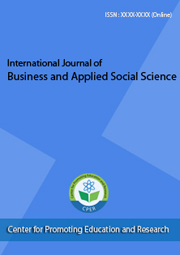Journal Menu
current
VOLUME: 6; ISSUE: 8; AUGUST: 2020
Table of Contents
Articles
Author(s): Jeksi Siokain; Roos Widjajani
Full Text
4102 2863
4102 2863
Abstract:
Covid-19 causes health, economic and social problems throughout the world, including Indonesia and Malang City, in particular, therefore regional financial policies are needed as an effort to overcome them. This study aims to analyze and describe the acceleration of Malang City Budget adjustment in 2020 in the framework of handling Covid-19, as well as the driving and inhibiting factors, by referring to the theory of public policy implementation and the concept of regional finance. This research uses a descriptive qualitative approach. Data from observations, interviews, and documentation were analyzed through the condensation stage, presentation, and drawing conclusions or verification. The results showed that the first and second APBD (Regional Budget) adjustments were made before central government instructions. The third stage of adjustment is a continuation of the previous two stages. The first stage adjustment results in IDR. 2,150,000,000, -. The second stage generates IDR. 83,900,000.00, which is reallocated for social assistance in the amount of IDR.26,244,000,000, - the provision of health equipment and facilities for IDR. 26,900,000, and a reserve fund of IDR.30,756,000,000. The third phase of APBD adjustments resulted in IDR.210,720,000,000. This figure also shows the Malang City APBD deficit. Policies have been implemented successfully and quickly according to the provisions because the implementers, namely TAPD (Local Government Budget Team), have adequate understanding, attitude, and speed in coordinating and managing budgets. The availability of a budget that is not prepared by the community to face the new standard era is challenging in adjusting the APBD.Recommended that the Malang City Government form a special team to conduct studies and design concrete productive programs and encourage Malang City Budget in the pandemic and post-pandemic era to reduce dependency, as well as prepare human Resources.






